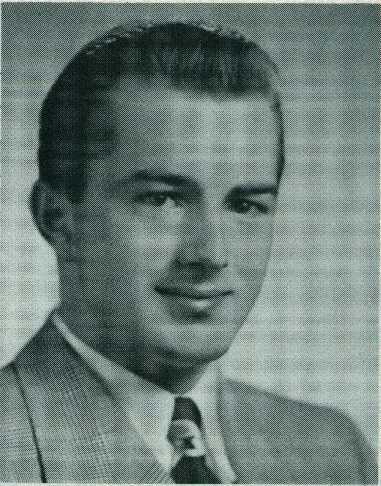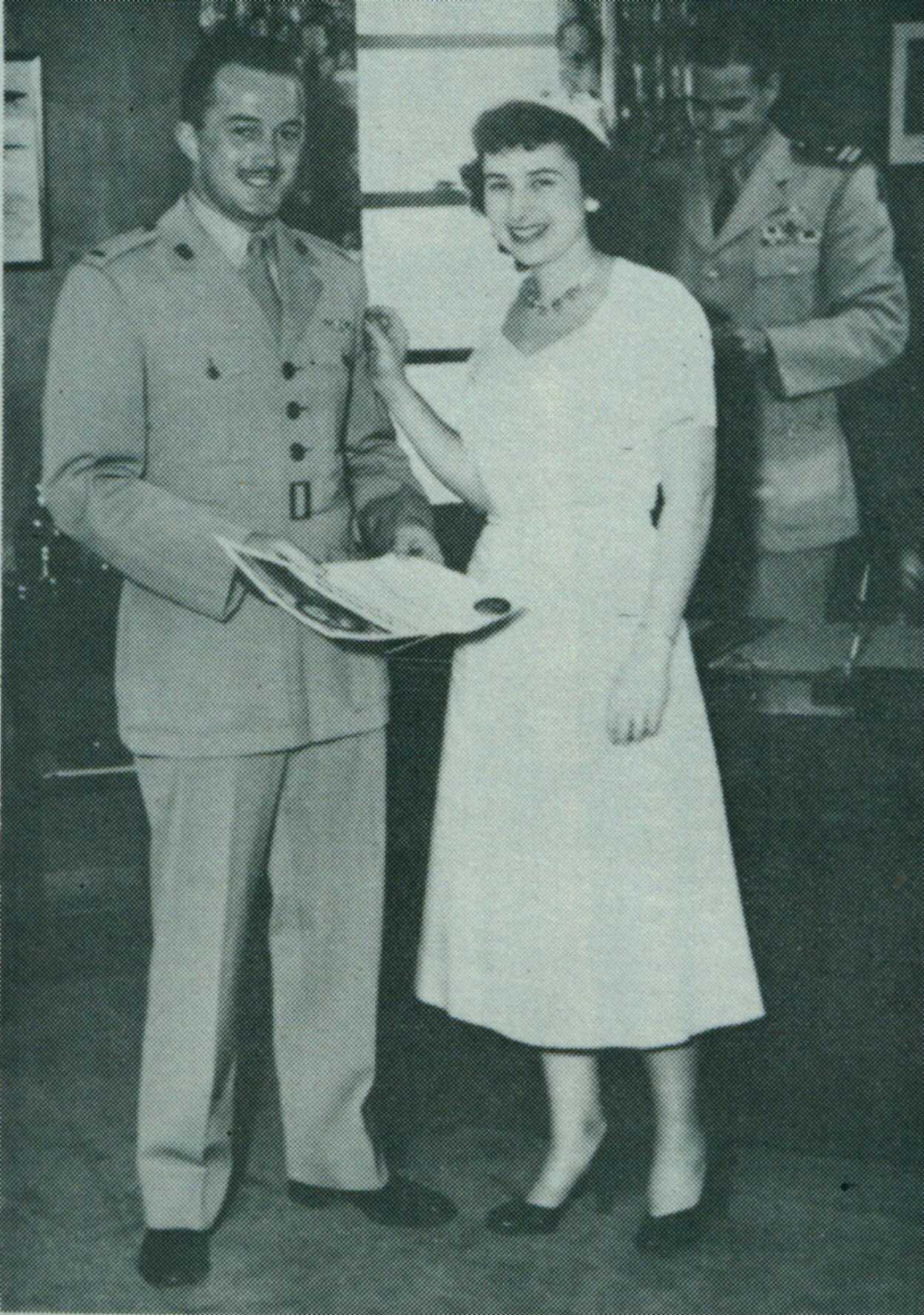


John G. Schmitz was born on August 12, 1930, in Milwaukee, Wisconsin, son of the late Jacob J. and Minnie Frueh Schmitz. He died of cancer on January 10, 2001, at the National Naval Medical Center in Bethesda, Maryland, surrounded by his family. Survivors include his wife of 47 years, the former Mary E. Suehr; the Honorable John P. Schmitz of McLean, Virginia; Captain Joseph E. Schmitz, USNR, of Bethesda, Maryland; Jerome T. Schmitz of Mesa, Arizona; Mary Letourneau of Seattle, Washington; Theresa Manion of Front Royal, Virginia; Elizabeth Crnkovich of McLean, Virginia; and 27 grandchildren. Their seventh child, Philip, is buried at Arlington National Cemetery. He is also survived by five brothers and sisters in the Milwaukee, Wisconsin, area.
John G. Schmitz spent most of his career in public service, spanning the decades of the 1960's and 70's. As a Congressman, State Senator and Presidential Candidate, he was the outspoken standard-bearer for conservative causes such as limited government, states' rights, right-to-life, a strong national defense and worldwide opposition to Communism. In 1964 at the age of 34, he was first elected to the California State Senate where he represented Orange County.
He was elected to Congress in 1970, replacing the Honorable James B. Utt in a special election, and quickly established himself as a leading conservative. He introduced the first Human Life Amendment in June 1972 (six months before Roe v. Wade). He received We the People's "Statesman of the Year" award in 1970, the National Economic Council's "Congressman of the Year" award in 1972, and the Congress of Freedom's "Man of the Year" award in 1972.
Internationally recognized for his resolute anti-Communism, Congressman Schmitz was invited to travel to Free China, Portugal, Portuguese Africa, and Greece by leaders in these countries. Schmitz served on the House Interstate and Foreign Commerce Committee and on the House Internal Security Committee. As a sitting Congressman, he served on the National Council of the John Birch Society. Among his publications are two books: The Viet Cong Front in the United States (1971); and Stranger in the Arena: the Anatomy of an Amoral Decade 1964-1974 (1974). He also wrote the Introduction to Gary Allen's bestseller, None Dare Call It Conspiracy (1971).
During his years "in the arena," he received many awards, including: California Republican Assembly "Legislator of the Year Award," 1966, 1967, 1968, 1969, 1971, 1972, 1979, & 1980; Americans for Constitutional Action "Distinguished Service Award," 1970; National Associated Businessmen "Watchdog of the Treasury Award," 1970, 1972; Sons of the American Revolution "National Legislator's Award," 1971; Federation of Citizens of German Descent "Outstanding Citizen Award for Integrity and Honor," 1972; Membership in the China Academy, 1972; and the Freedom Foundation at Valley Forge "George Washington Medal," 1973.
He may well be remembered most for his 1972 candidacy for President of the United States representing the American Party and receiving 1.1 million votes in 32 states. Political historian Michael Barone observed that Schmitz distinguished himself in the campaign with his direct talk and "puckishly humorous" wit. Schmitz repeated often his elegantly simple campaign platform in three points: (1) in foreign affairs, we should always treat our friends better than our enemies; (2) never go to war unless you plan on winning; and (3) domestically, those who work ought to live better than those who won't.
Schmitz always took principled political stances, often finding himself in the minority. When asked about his strong conservatism, Schmitz explained that the "middle of the road" is determined by how far either side, left or right, is willing to push. However, political supporters and opponents alike were fond of and respected John Schmitz the man. "His sense of humor, intelligence and enthusiasm will long be remembered by his Orange County friends," said Tom Fuentes, Chairman of the Orange County Republican Party.
In the California Senate he served as Chairman of the Local Government Committee. After his service in Congress he was re-elected to the State Senate in 1978 and served as Chairman of the Constitutional Amendments Committee and Chairman of the Military and Veteran Affairs Committee. He retired from the California Legislature in 1982.
He was commissioned a Second Lieutenant in the United States Marine Corps in 1952. After earning his pilot wings in 1954, he was assigned to MCAS Cherry Point, North Carolina, flying F2H4 Banshees and F9F8 Cougars in VMF-114, the first operational Marine Corps jet fighter squadron. He subsequently qualified as a helicopter pilot, served as Officer in Charge of VMO-2 (Det. A) in Mt. Fuji, Japan, and lectured on Communism at the Fleet Marine Force Pacific Leadership School at MCAS El Toro, California, until 1960. In the Reserves, he rose to the rank of Colonel, and served as Commanding Officer of MTU (AVN-7) at MCAS El Toro, California.
Following his active duty in the Marine Corps and throughout his years of elected public service, he taught political science and philosophy at Santa Ana (Rancho Santiago) College, Santa Ana, California, retiring as a Professor in 1990. He also taught as an Adjunct Professor at U.C. Irvine.
Schmitz received his Bachelor of Science degree from Marquette University in 1952, and his Master of Arts from California State University at Long Beach in 1960. He was a Ph.D. candidate in Political Philosophy at Claremont Graduate School and did a sabbatical at Georgetown University.
Throughout his life, Schmitz strove to be a devout Roman Catholic and a modern day Renaissance man. He was an avid reader of history, played the violin, mastered political cartooning in the 1950's, and turned to painting Orange County seascapes in the 1980's. He traveled to Germany as a participant in the official Internationes program and was honored in 1973 by the Cologne daily newspaper "Rundschau" with the "Der Herr Schmitz Ordens" recognizing his Rhineland ancestry, his lifelong commitment to public service and the wit he demonstrated in his 1972 Presidential campaign. In the 1960's he worked part-time and summers as a Keystone Cop at Disneyland; in 1995 he was inducted into the Military and Hospitaler Order of St. Lazarus of Jerusalem with the rank of Commander Companion.
Since 1995 he had been President of Chapelle Charlemagne, a family-owned vineyard in Rappahannock County, Virginia.
In lieu of flowers, the family suggests charitable contributions to Christendom College, 134 Christendom Drive, Front Royal, Virginia 22630.


